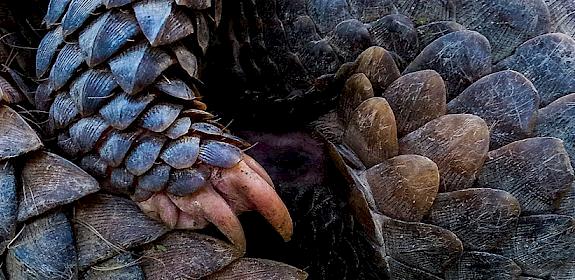Law enforcement plan a must in Singapore’s fight to tackle illegal ivory transit role
Singapore, 13th June 2016—TRAFFIC and WWF-Singapore are calling upon the Singapore Government to follow up an ivory destruction event today with tough law enforcement action.
“Today’s event was symbolic of the Government's support for the fight against ivory trade, but needs to be followed up with meaningful action to address the country's unenviable role as a transit point in the smuggling of ivory from Africa to Asia,” says Elaine Tan, CEO, WWF-Singapore.
From 2013 to 2015, Singapore reported five ivory seizures, accounting to more than seven tonnes of illegal ivory. In addition, it has been implicated in 16 other shipments amounting to 4.1 tonnes of ivory that was slated for Singapore, or had passed through its ports and been seized elsewhere. Singapore also plays a key role as a transit hub of choice for many large shipments of ivory moving on to Viet Nam and China.
TRAFFIC and WWF-Singapore urge authorities to put in place a law enforcement action plan to tackle the usage of both its sea and airports for this illegal transit trade. Apart from intelligence gathering, the plan must include risk profiling of containers, traffickers and trade routes from or to high-risk destinations as well as the use of sniffer dogs and controlled deliveries to track ivory shipments.
TRAFFIC and WWF-Singapore also calls on Singapore and other governments destroying ivory to monitor the impacts of such events on market dynamics and consumer attitudes.
“We know little about how consumers and traders are responding to these very public symbolic acts, or how it may be impacting the poaching of elephants”, said Dr Chris R. Shepherd, Regional Director for TRAFFIC in Southeast Asia. “Acquiring such knowledge is a vital part of overall efforts to tackle the elephant slaughter and illegal ivory trade.’’
Today’s destruction of 7.9 tonnes of ivory was a first for Singapore.
As with all such events TRAFFIC and WWF-Singapore strongly encourage an independent audit of the stocks being destroyed before the event to ensure transparency in the process and guard against it being used as a cover for laundering remaining stock into illegal trade.
Despite the ban on the international trade in ivory, as many as 30,000 African elephants are killed each year across Africa to feed a lucrative, global black market for ivory.
According to media reports, on Sunday, South Sudan burned five tonnes of seized ivory and rhino horn, although few other details were available.





